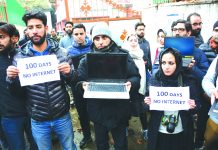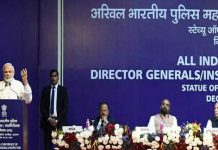CHENNAI FILMMAKER Leena Manimekalai’s films deal with issues others sweep under the rug — violence against Dalit women, child marriage in Tamil Nadu. Her latest film, Sengadal: The Dead Sea, based on the ethnic war in Sri Lanka that affected the lives of fishermen in Dhanushkodi in Tamil Nadu, has been refused a clearance certificate by the Central Board of Film Certification (CBFC). The Censor Board says that it made denigrating political remarks about the governments of Sri Lanka and India.The 33-year-old documentary filmmaker tells Aastha Atray Banan why she will remain a non- conformist when it comes to her art. Edited excerpts:

How did the fishermen’s lives inspire you as a filmmaker?
The fishermen community is very compassionate. Be it refugees or rebels who come to them, they help everyone, often inviting problems from the State. Almost every household in Dhanush kodi has a story of their men being shot randomly by the Sri Lankan Navy in the sliver of water between India and Sri Lanka. Fish ermen get dumped as spies and smugglers and are punished. Sengadal will expose how every institution of power oppresses them.

The Censor Board wanted to cut some parts of your film. But you have released the film independently. What is your take on censorship?
The Censor Board is a shame to our democracy. Institutions controlling content and deciding what their ‘subjects’ should see or think are a result of some colonial hang-up and a fascist attitude. I have gone to people directly with my films and there has been no law and order situation as the CBFC had feared. In fact, the films demanded intervention for the community. I can’t allow agencies like the CBFC to limit me.
Your non-conformity dates back to your childhood. How did caste prejudices lead you to rebel?
In Maharajapuram, my village, Dalits live in ghettos and the landlord class lives on better streets. Though my family had Leftist leanings and was seen as a traitor in our upper-class landlord community, we still lived on the better streets, owned lands and married within the community. My desire for equality, which I acquired through my early exposure to Russian literature and Periyar EV Ramasamy little books, was constantly battered by the caste stereotypes. As a child, I once entered the village temple when I was menstruating. And when I came back, I told my family members that I’d rather die staying in my Dalit friend’s home.
You were raised by a single mother. How did it form your childhood?
At 14, my mom married my father who is her maternal uncle. She used to say that I was born to her when she didn’t even know how a baby comes out of a woman’s body. I have heard her cursing my grandparents for dooming her to marriage when she was still playing kitti-pullu (village game). She wanted me to learn everything she didn’t — Bharatanatyam, Carnatic music, Sanskrit, etc. Being what she could not be was a task for me.
Your film Goddesses had Dalit women taking on typically male roles in society and questioning them. Do you relate to these aspects of your protagonists?
Lakshmiamma (mourner and beef seller), Sethurakuamma (fisherwoman) and Krishnaveniamma (gravedigger) are shamans to me. The extraordinary lust these women have for their lives made me feel so good about my own trials and challenges. I think, I question and I live and I owe this quality of mine to people like these three goddesses.
Aastha Atray Banan is a Senior Correspondent, Mumbai with Tehelka.
aastha@tehelka.com













